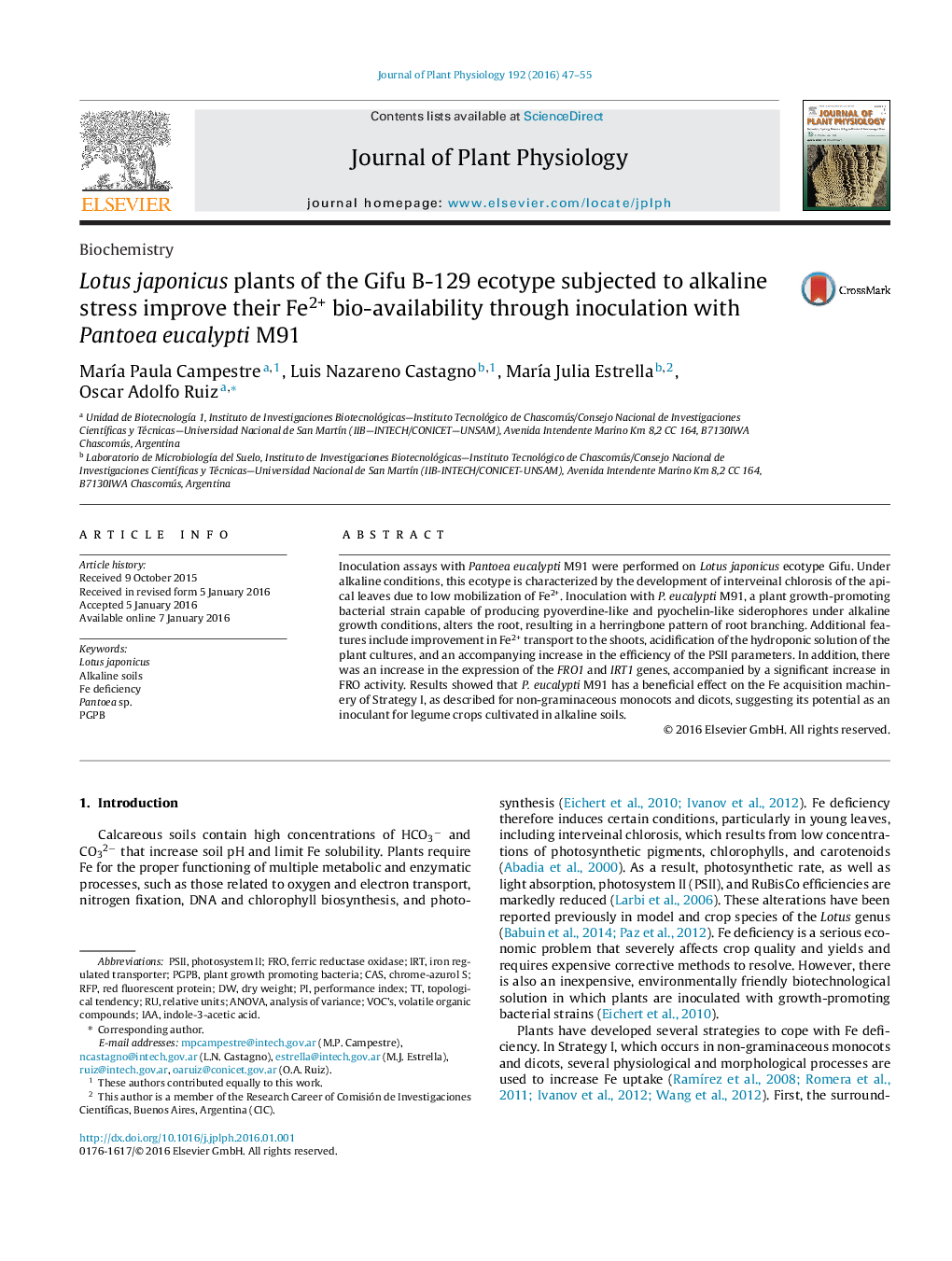| Article ID | Journal | Published Year | Pages | File Type |
|---|---|---|---|---|
| 8387229 | Journal of Plant Physiology | 2016 | 9 Pages |
Abstract
Inoculation assays with Pantoea eucalypti M91 were performed on Lotus japonicus ecotype Gifu. Under alkaline conditions, this ecotype is characterized by the development of interveinal chlorosis of the apical leaves due to low mobilization of Fe2+. Inoculation with P. eucalypti M91, a plant growth-promoting bacterial strain capable of producing pyoverdine-like and pyochelin-like siderophores under alkaline growth conditions, alters the root, resulting in a herringbone pattern of root branching. Additional features include improvement in Fe2+ transport to the shoots, acidification of the hydroponic solution of the plant cultures, and an accompanying increase in the efficiency of the PSII parameters. In addition, there was an increase in the expression of the FRO1 and IRT1 genes, accompanied by a significant increase in FRO activity. Results showed that P. eucalypti M91 has a beneficial effect on the Fe acquisition machinery of Strategy I, as described for non-graminaceous monocots and dicots, suggesting its potential as an inoculant for legume crops cultivated in alkaline soils.
Keywords
Related Topics
Life Sciences
Agricultural and Biological Sciences
Agronomy and Crop Science
Authors
MarÃa Paula Campestre, Luis Nazareno Castagno, MarÃa Julia Estrella, Oscar Adolfo Ruiz,
